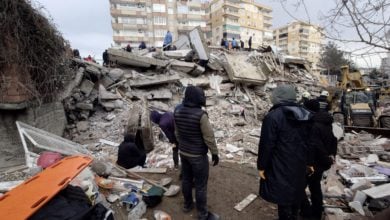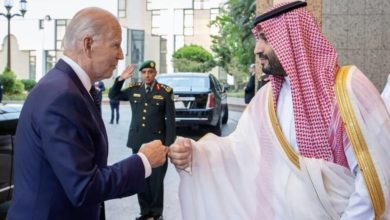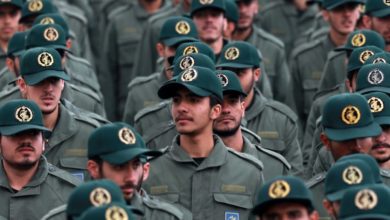This article was published in print form on Nov. 10, prior to the U.S.-Israeli attack on Gaza. Its original title was “Will the White House initiate a new war?”
Only hours after the U.S. election had been completed, a flurry of news stories revealed new aggressive imperialist action against the sovereign government of Syria. Turkey indicated that NATO powers were discussing the creation of a “safe zone” for rebels inside Syria. Despite the name, this would entail direct military intervention. Simultaneously, British imperialism, undoubtedly in close coordination with their Pentagon friends, announced direct dealings with the Syrian rebels.
For millions of people, the end of the two-year election cycle in itself warrants a sigh of relief. Much of the media coverage has now turned to the “lame duck” session of Congress, explaining that few significant policies—with the possible exception of the “fiscal cliff” deal—will be enacted over the next few months.
In fact, history shows that the immediate post-election period in the United States is an extremely dangerous one for the people of the world. The anti-war movement and all people of conscience must be especially alert to the possibility of more aggressive intervention against Syria.
The electoral season and foreign policy
In the months leading up to the 2012 elections, the Obama administration did not take any bold initiatives in foreign policy.
Its drive for “regime change” in Iran has relied on ever tightening sanctions that deprive the country of the ability to trade internationally and sell its oil. Citing the “effectiveness” of these sanctions in imposing hardship on the population and high inflation, the Obama administration has resisted pressure to bomb Iran, or authorize Israel to do so.
The Obama administration has also refused to take direct military action in Syria, another government that U.S. imperialism would like to replace with a client regime.
Such tactical choices are not unusual. Within the confines of the overall objectives and the strategies of U.S. foreign policy, presidents often tilt towards certain tactics based on electoral considerations. The president, the CEO of the capitalist class, carries out a cost/benefit analysis of every intervention, weighing its potential advantages against potential dangers. A sitting president is typically—although not always—less likely to take on heavy risks during such times.
Iran and Syria
In the cases of both Iran and Syria, realities on the ground impose serious limits and risks for U.S. interests if they opt for more direct intervention. In neither case is there a clear ruling-class consensus on the next course of action. But now that President Obama has been reelected, he is able to revisit some of the policies that he had placed on hold.
The number of votes with which Obama was reelected did not deliver him a powerful “mandate.” At times of such political uncertainty, Democratic politicians in particular often adopt a more aggressive foreign policy to reassert their adherence to militarism and ruling-class interests.
In Iran, the Obama administration is undoubtedly re-evaluating whether it wants to supplement sanctions, a form of war, with a military component, such as a bombing of Iran’s nuclear facilities.
In the case of Syria, the United States has been deprived of the “Libya model” of regime change. China and Russia have consistently blocked UN Security Council resolutions for the imposition of a “no-fly zone,” a euphemism for the destruction of a country through aerial bombing.
Nonetheless, in the last presidential debate Obama confidently told the world that the U.S. government is “playing the leadership role” in Syria. The United States has supported the funding and arming of the “Free Syrian Army” primarily through client states like Saudi Arabia and Qatar. For the Syrian opposition, Secretary of State Hillary Clinton announced that her department had recommended names and organizations to be included in any leadership structure and which groups must be phased out.
The U.S. government has also helped Turkey set up border regions with Syria as a staging ground for the armed mercenaries of the FSA. The escalation of border skirmishes between Turkey and Syria could become a justification for direct military operations under the guise of defending Turkey, a NATO member.
The risks of more direct intervention are high but the potential rewards are equally great. Aggressive military action, accompanied by fervent patriotism, tends to produce a high degree of ruling-class unity, at least in the short term. Moreover, if the U.S. government can succeed in overthrowing the governments of Syria and/or Iran, it would deliver a huge blow to the Palestinian and other resistance movements in the region. The Obama administration would be celebrated by all major sources of ruling-class opinion.
How do elections matter?
Elections do not determine the overall objectives and strategies of U.S. foreign policymakers, but they do influence the specific tactics that the U.S. government implements in pursuit of those overarching goals.
Over the decades, each U.S. presidential administration have pursued the objective of making the world’s raw materials cheap and easily accessible for oil companies and other corporations. At the same time, they have worked hard to open and expand global markets for the penetration of U.S. capital. Pursuit of these goals have made it a strategic requirement for the imperialist state to aim for the overthrow of socialist states, which threaten the very existence of private capital, and bourgeois nationalist states, which impose limitations on the penetration of capital and the potential for extracting super-profits.
Because these objectives stem from the very nature of imperialism, they are not subject to change when either a Republican or Democrat takes over as the manager of the affairs of the capitalist class. For this reason, in spite of occasional anti-war rhetoric, the Democratic Party is fundamentally a party of war.
The Clinton administration—1993-2000—prosecuted and defended genocidal sanctions of Iraq, which took the lives of half a million children. Using intentionally provocative weapons inspections and periodic bombing campaigns, Clinton tried to push the conflict into open warfare. Clinton also provided a valuable service to the imperialists with his ruthless 1999 bombing of Yugoslavia that led to the opening of that formerly socialist state to U.S. and Western European capital.
After years of occupation of Afghanistan and Iraq, Barack Obama rode a wave of anti-war sentiment to get elected in 2008. But in office Obama essentially implemented the Bush-Petraeus plan in Iraq and tripled the number of troops in Afghanistan—what he called the “good war.” Obama joined with his European imperialist allies to lead the charge against the independent government of Libya, securing through seven months of relentless NATO bombing another market and source of oil. The intervention allowed the United States to forcefully reassert its power in the region amid the so-called “Arab Spring.”
A post-election U.S. landscape will not cause a fundamental shift in U.S. foreign policy, the major tenets of which are formed by the material interests of the U.S. capitalist class. But it could result in more aggressive tactics, with the United States possibly willing to take on more adventurous and murderous forms of intervention. Progressive and anti-war activists in the United States should be on alert, prepared to react by reinvigorating the anti-war movement in reaction to possible U.S. interventions in the Middle East and elsewhere.





